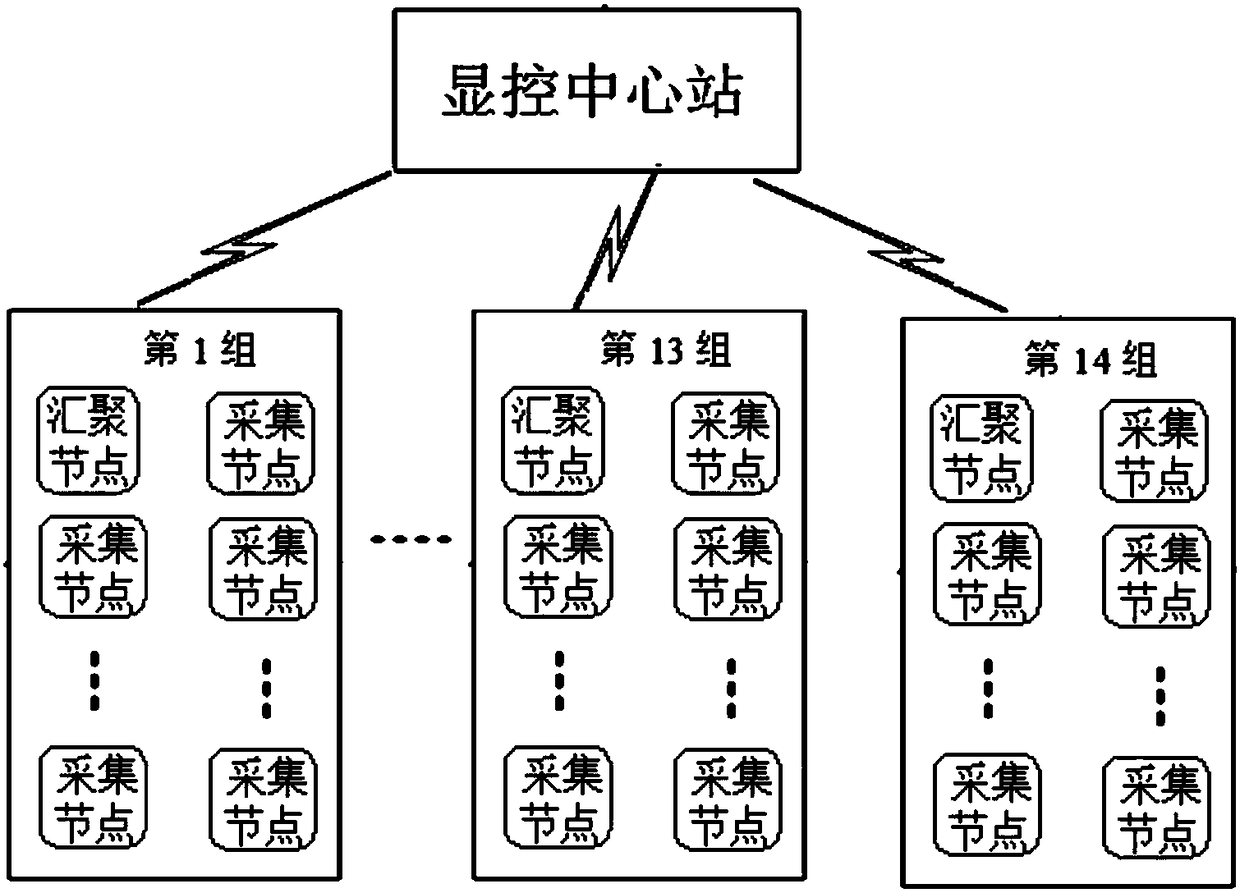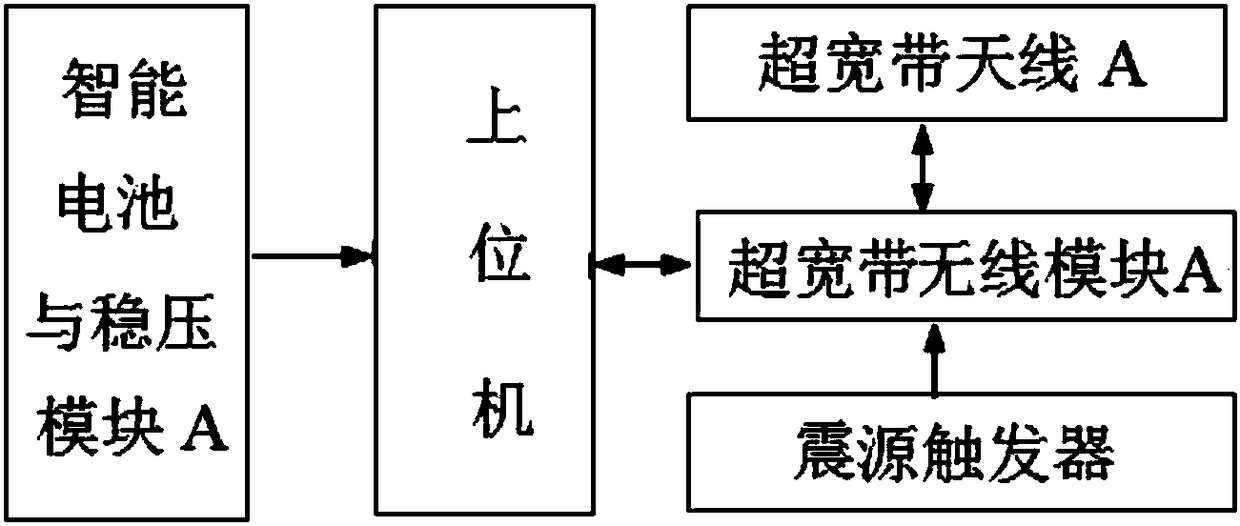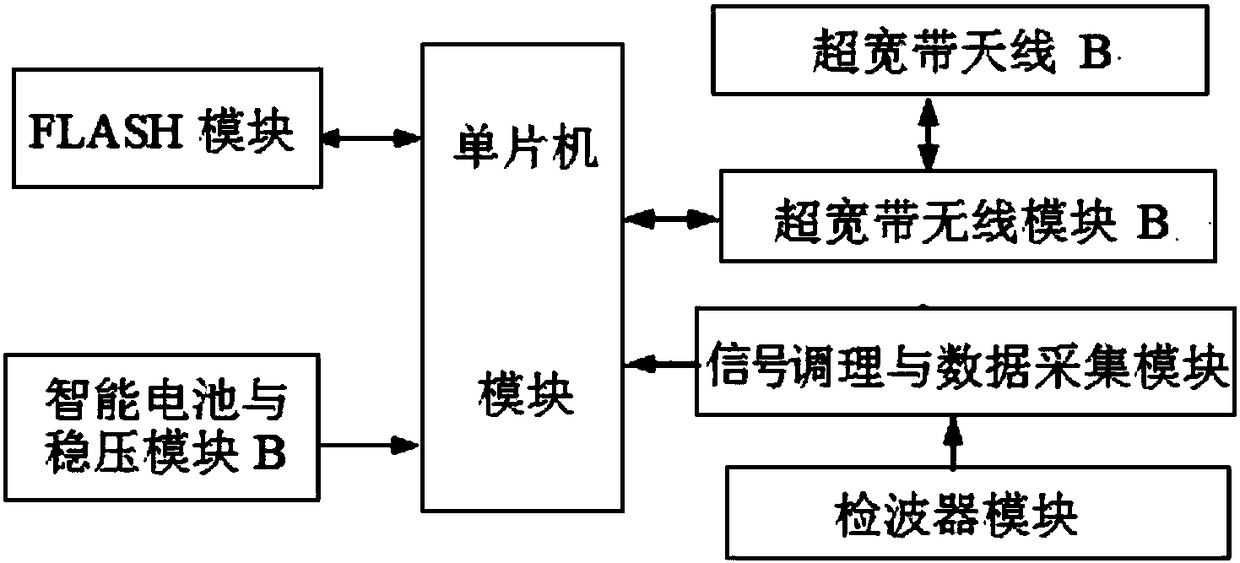A quasi-real-time cableless network seismograph system based on ultra-wideband wireless module
A wireless module and ultra-broadband technology, applied in the field of quasi-real-time cableless network seismograph system, can solve the problems of inability to collect data and return the working status to the main control computer, lack of synchronization function, increase the amount of acquisition node equipment, etc.
- Summary
- Abstract
- Description
- Claims
- Application Information
AI Technical Summary
Problems solved by technology
Method used
Image
Examples
Embodiment 1
[0086] Embodiment 1: the present invention provides a kind of quasi-real-time cableless network seismograph system based on the ultra-wideband wireless module, and its structure is as follows figure 1 As shown, there is a display and control central station and multiple groups of collection nodes, the display and control central station is the master node, and the collection nodes are slave nodes. Arrange a display and control center station and multiple collection nodes in the exploration area. This embodiment takes 224 collection nodes as an example. The collection nodes are divided into 14 groups according to the communication channels, each group has 16 collection nodes, the first collection node in each group is configured as a sink node, and the collection nodes in each group are arranged in a rectangular grid structure.
[0087] see figure 2 , The display and control central station is composed of a host computer, an ultra-wideband antenna A, an ultra-wideband wirele...
Embodiment 2
[0106] Embodiment 2: the present invention provides a kind of quasi-real-time cableless network seismograph system based on the ultra-wideband wireless module, its structure and working process are basically the same as embodiment 1, and a display and control central station and multiple groups of acquisition nodes are provided to collect Nodes are divided into 14 groups according to communication channels, the difference is that in this embodiment each group has 1000 collection nodes, 14000 collection nodes in total; the first collection node in each group is configured as a sink node. In addition, the sampling frequency is 10KHz, the frequency response of the acquisition node is 1Hz to 1000Hz, and the trigger method adopts the blasting machine method.
[0107] The cableless network seismograph system of the present invention can self-organize the wireless Internet of Things, the system is small in size, light in weight, low in cost, low in battery power consumption, strong in...
PUM
 Login to View More
Login to View More Abstract
Description
Claims
Application Information
 Login to View More
Login to View More - R&D
- Intellectual Property
- Life Sciences
- Materials
- Tech Scout
- Unparalleled Data Quality
- Higher Quality Content
- 60% Fewer Hallucinations
Browse by: Latest US Patents, China's latest patents, Technical Efficacy Thesaurus, Application Domain, Technology Topic, Popular Technical Reports.
© 2025 PatSnap. All rights reserved.Legal|Privacy policy|Modern Slavery Act Transparency Statement|Sitemap|About US| Contact US: help@patsnap.com



